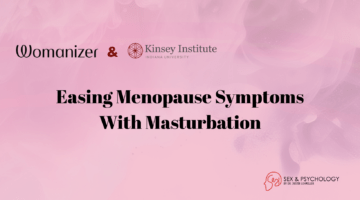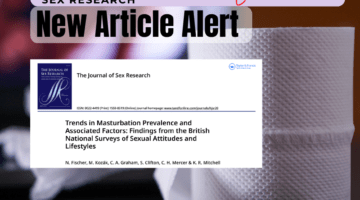Is Pornography Harmful to Our Brains and to Our Love Lives?
March 19, 2012 by Justin Lehmiller
“America is suffering a pandemic of harm from pornography. A wealth of research is now available demonstrating that pornography causes profound brain changes in both children and adults, resulting in widespread negative consequences…Pornography is toxic to marriages and relationships. It contributes to misogyny and violence against women.”
The above quote comes from 2012 Presidential candidate Rick Santorum’s Campaign Website. He and a number of other prominent politicians have recently waged a war on porn, claiming that it is damaging to society on a number of levels. In fact, Cogresswoman Michele Bachmann has gone as far as to pledge her support for a constitutional ban on all forms of pornography in order to combat these supposed negative effects. But is there anything to all of these claims that exposure to porn is harmful? Is there really a “wealth of research” indicating that pornography causes a host of “widespread negative consequences?”
To put this as simply as I possibly can: no. Let’s examine the claims on Santorum’s website one by one and see what the scientific literature really says. First, does exposure to pornography cause “profound brain changes?” While some research has indeed documented brain atrophy among excessive porn watchers, it is far from conclusive that watching pornography caused these brain changes.[1] Virtually all of the studies in this area utilized correlational methods, which makes it impossible for us to make any claims about cause-and-effect. For example, most of the compulsive porn watchers who were included in these studies had a history of pathological behavior, such as alcohol abuse. So did porn cause the observed changes in their brains, or was it the booze? Although we can’t say for sure, the case that porn causes brain damage would appear tenuous at best.
Second, is porn really “toxic” to relationships? Here we have the same issue. While there is indeed some research indicating that pornography is associated with more relationship problems, it is all correlational in nature. For example, a recent study made the rounds in the media suggesting that Playboy magazine “caused” up to 25% of all divorces in the 1960s and 70s.[2] But there are a ton of other potential reasons Playboy’s readership could have increased at the same time as the divorce rate (e.g., maybe it had something to do with the fact that the 70’s was the “swinger’s” era, or perhaps it’s because divorced guys have a greater need for and/or opportunity to purchase porn). There is simply do definitive evidence that porn causes relationship problems all or even most of the time. Certainly, there are some relationships in which porn is an issue, and I do not wish to minimize that. But at the same time, it is important to recognize that there are many relationships in which watching porn is a positive and shared activity. Thus, it all depends upon the people involved and how they have negotiated their relationship.
And what about the effects of porn on violence against women? A recent review of the research in this area concluded that there is absolutely no evidence that exposure to pornography causes an increase in rape or sexual assault.[3] In fact, while pornography consumption has skyrocketed in the past two decades in the United States and many other parts of the world, the frequency of rape has actually decreased!
In short, most of the recent claims you’ve been hearing from politicians about the dangers of porn simply have no basis in fact. We do not have any definitive evidence that pornography is causing harm to our brains or to our love lives.
Want to learn more about Sex and Psychology ? Click here for previous articles or follow the blog on Facebook (facebook.com/psychologyofsex), Twitter (@JustinLehmiller), or Reddit (reddit.com/r/psychologyofsex) to receive updates. You can also follow Dr. Lehmiller on YouTube and Instagram.
[1] Reid, R. C., Carpenter, B. N., & Fong, T. W. (2011).Neuroscience research fails to support claims that excessive pornography consumption causes brain damage. Surgical Neurology International, 2, 64. doi: 10.4103/2152-7806.81427
[2] Daines, R. M., & Shumway, T. (2011). Pornography and divorce.
[3] Ferguson, C. J., & Hartley, R. D. (2009). The pleasure is momentary…the expense damnable? The influence of pornography on rape and sexual assault. Aggression and Violent Behavior, 14, 323-329. doi: 10.1016/j.avb.2009.04.008
Image Source: iStockphoto
You Might Also Like:

Dr. Justin Lehmiller
Founder & Owner of Sex and PsychologyDr. Justin Lehmiller is a social psychologist and Research Fellow at The Kinsey Institute. He runs the Sex and Psychology blog and podcast and is author of the popular book Tell Me What You Want. Dr. Lehmiller is an award-winning educator, and a prolific researcher who has published more than 50 academic works.
Read full bio >

